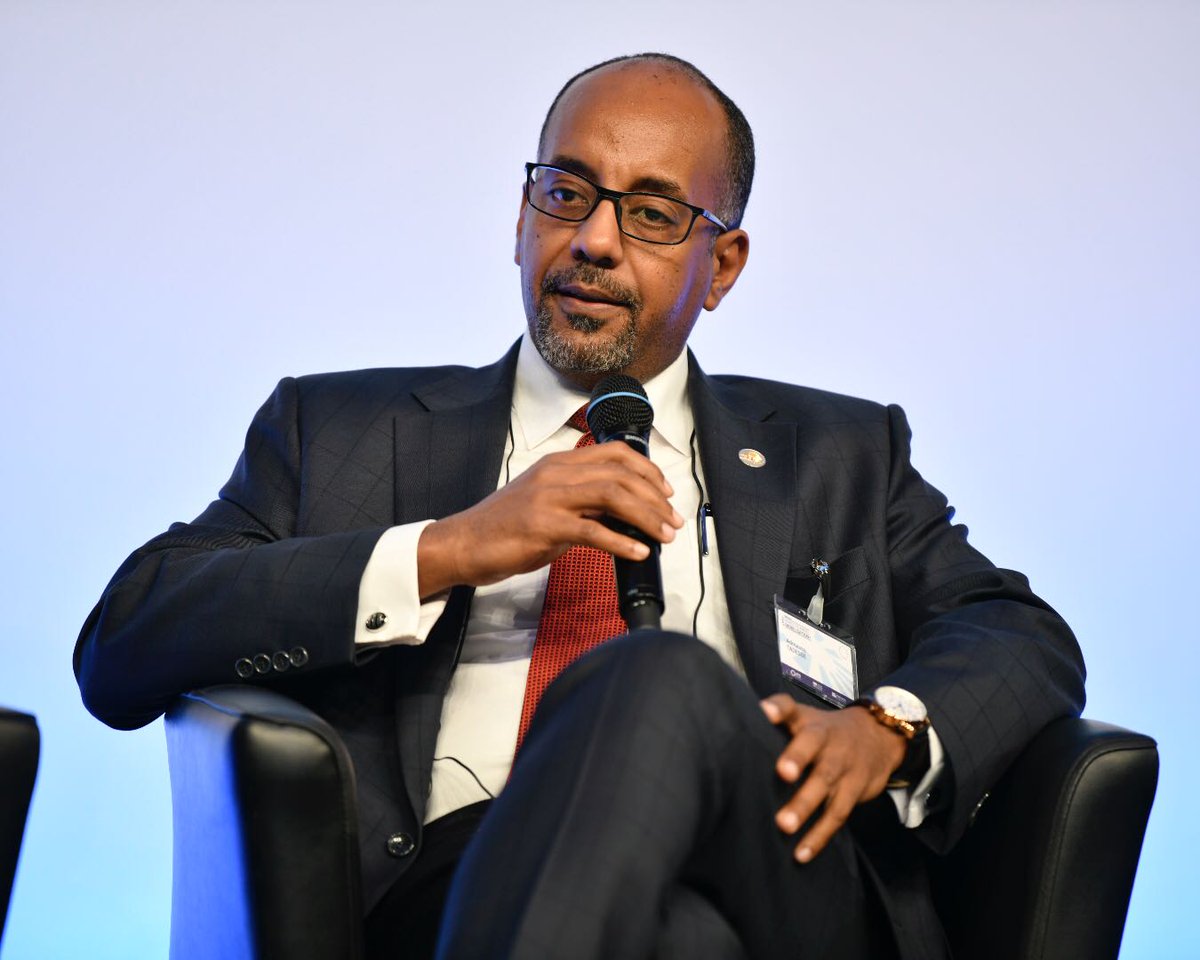
Commentaries | Feb 08,2020
Nov 16 , 2024
By Daniel Kassahun (PhD)
Aliko Dangote, Africa's wealthiest businessman, lambasted the continent's convoluted visa systems, criticising the need for 35 different visas which stifles intra-African trade. His critique was not only about red tape. It exposed more profound structural flaws that hinder Africa from tapping into its collective economic prowess. Ethiopia is a prime example of these flaws, besieged by internal barriers that impede its growth.
In a bold economic move, the federal government floated the Birr in late July, resulting in a 30pc devaluation overnight. The decision, backed by the International Monetary Fund (IMF), sparked fears of runaway inflation. Contrary to these concerns, Fitch Ratings upgraded Ethiopia's domestic credit rating, offering a glimmer of optimism. Prime Minister Abiy Ahmed (PhD) touted these macroeconomic reforms as foundational steps toward sustainable growth.
Yet, questions linger about whether Ethiopia's fragile economy and fragmented social fabric can withstand such seismic shifts.
Economic growth requires a delicate balance of factors, much like a finely tuned orchestra where every instrument plays in harmony. Rich in resources and diversity, Ethiopia needs to leverage these assets to achieve prosperity. Central to this is creating a seamless network of connectivity that facilitates the efficient movement of goods, resources, and skilled labour. However, the reality on the ground tells a different story.
Connectivity, the lifeblood of any thriving economy, faces considerable barriers. The country's transportation routes have become perilous due to persistent security tensions. Highways have turned into dangerous corridors plagued by robberies, armed blockades, and widespread extortion. Some routes have earned the ominous nickname "death alley." Truck drivers and travellers frequently fall victim to these threats, disrupting the flow of commerce.
While domestic air travel offers a safer alternative, it is costly and impractical for moving large quantities of goods.
These logistical bottlenecks, coupled with broader economic ordeals, have fuelled inflation, pushing many — especially civil servants — to the brink of financial hardship. Regional states like Oromia and Amhara remain conflict zones, rendering large swaths of the country inaccessible and risky for trade or investment. During periods of political upheaval, commercial activities grind to a halt as factories and businesses close, and criminals exploit the ensuing chaos.
Ethno-religious tensions have further fragmented the economic community, widening rifts between regions and isolating once-integrated markets. In Tigray alone, an estimated six tonnes of gold are allegedly smuggled out annually. Nationwide, coffee production, a key export, has plummeted by 50pc, mainly due to escalating security concerns.
Addis Abeba is often perceived as the last bastion of safety. Some diplomats quietly suggest it is the only secure enclave left. Yet this sense of security is increasingly fragile. As night falls, an eerie quiet descends upon the city as businesses close early, public transportation subsides, and residents hurry home as if observing an unspoken curfew.
Farmers are among those most affected by the barriers to mobility. To supplement declining agricultural productivity and income, they traditionally migrated — seasonally or permanently — from overcrowded areas to regions needing extra labour, especially during harvest seasons. For generations, farmers from Kembata and Hadiya trekked to the sugar plantations of Wonji and Metehara, tapping into valuable off-farm income.
This once-vibrant tradition, known as "mofer zemet," is fading. Rising ethnopolitical tensions and increasing insecurity have made internal migration routes perilous. With domestic avenues closed, many embark on hazardous journeys abroad, seeking opportunities in Europe, passing death corridors like Libya, as well as the Middle East and South Africa.
Even foreign investors are not immune to the despair of constrained connectivity. In 2015, Dangote Cement entered the Ethiopian market, establishing the country's largest cement plant capable of producing 120 million bags annually. Despite the venture's promise, it has faced security problems. The tragic murder of its country manager in 2018 and the kidnapping of workers are evidence of the profound difficulties of doing business in a country where mobility poses risks.
The government's efforts to implement reforms and stimulate growth may have seen some success, but these achievements remain isolated. Without robust infrastructure and secure connectivity to support them, these pockets of progress are like delicate cells deprived of vital nutrients. They risk withering in isolation. Dismantling the mobility barriers that stifle growth is imperative for Ethiopia to realise its full potential. Ensuring safe and efficient movement is crucial for economic activities to flourish.
When connectivity breaks down, societies begin to unravel—the shared threads of language, culture, and faith fray, leading to isolation and distrust. The fragmentation can harden into a permanent divide, making reunification an arduous, if not impossible, task.
To prevent such an outcome, Ethiopians should prioritise security to guarantee the free flow of people, goods, and ideas. This should go beyond constructing roads or cutting bureaucratic red tape. It demands a comprehensive overhaul of the country's security infrastructure. By addressing these fundamental issues, the government can hope to nurture a future where economic prosperity and social harmony prevail.
PUBLISHED ON
Nov 16,2024 [ VOL
25 , NO
1281]


Commentaries | Feb 08,2020

Exclusive Interviews | Nov 21,2018

Viewpoints | May 24,2025

Viewpoints | Jun 17,2023

Commentaries | Jan 31,2021

Commentaries | Sep 10,2022

Fortune News | May 13,2023

Radar | Dec 19,2020

Life Matters | Aug 10,2024

View From Arada | Jan 14,2023

My Opinion | 131819 Views | Aug 14,2021

My Opinion | 128203 Views | Aug 21,2021

My Opinion | 126147 Views | Sep 10,2021

My Opinion | 123767 Views | Aug 07,2021

Dec 22 , 2024 . By TIZITA SHEWAFERAW
Charged with transforming colossal state-owned enterprises into modern and competitiv...

Aug 18 , 2024 . By AKSAH ITALO
Although predictable Yonas Zerihun's job in the ride-hailing service is not immune to...

Jul 28 , 2024 . By TIZITA SHEWAFERAW
Unhabitual, perhaps too many, Samuel Gebreyohannes, 38, used to occasionally enjoy a couple of beers at breakfast. However, he recently swit...

Jul 13 , 2024 . By AKSAH ITALO
Investors who rely on tractors, trucks, and field vehicles for commuting, transporting commodities, and f...

Jul 5 , 2025
Six years ago, Ethiopia was the darling of international liberal commentators. A year...

Jun 28 , 2025
Meseret Damtie, the assertive auditor general, has never been shy about naming names...

Jun 21 , 2025
A well-worn adage says, “Budget is not destiny, but it is direction.” Examining t...

Jun 14 , 2025
Yet again, the Horn of Africa is bracing for trouble. A region already frayed by wars...

Jul 6 , 2025 . By BEZAWIT HULUAGER
The federal legislature gave Prime Minister Abiy Ahmed (PhD) what he wanted: a 1.9 tr...

Jul 6 , 2025 . By YITBAREK GETACHEW
In a city rising skyward at breakneck speed, a reckoning has arrived. Authorities in...

Jul 6 , 2025 . By NAHOM AYELE
A landmark directive from the Ministry of Finance signals a paradigm shift in the cou...

Jul 6 , 2025 . By NAHOM AYELE
Awash Bank has announced plans to establish a dedicated investment banking subsidiary...